
Sign in to your ScreenRant account
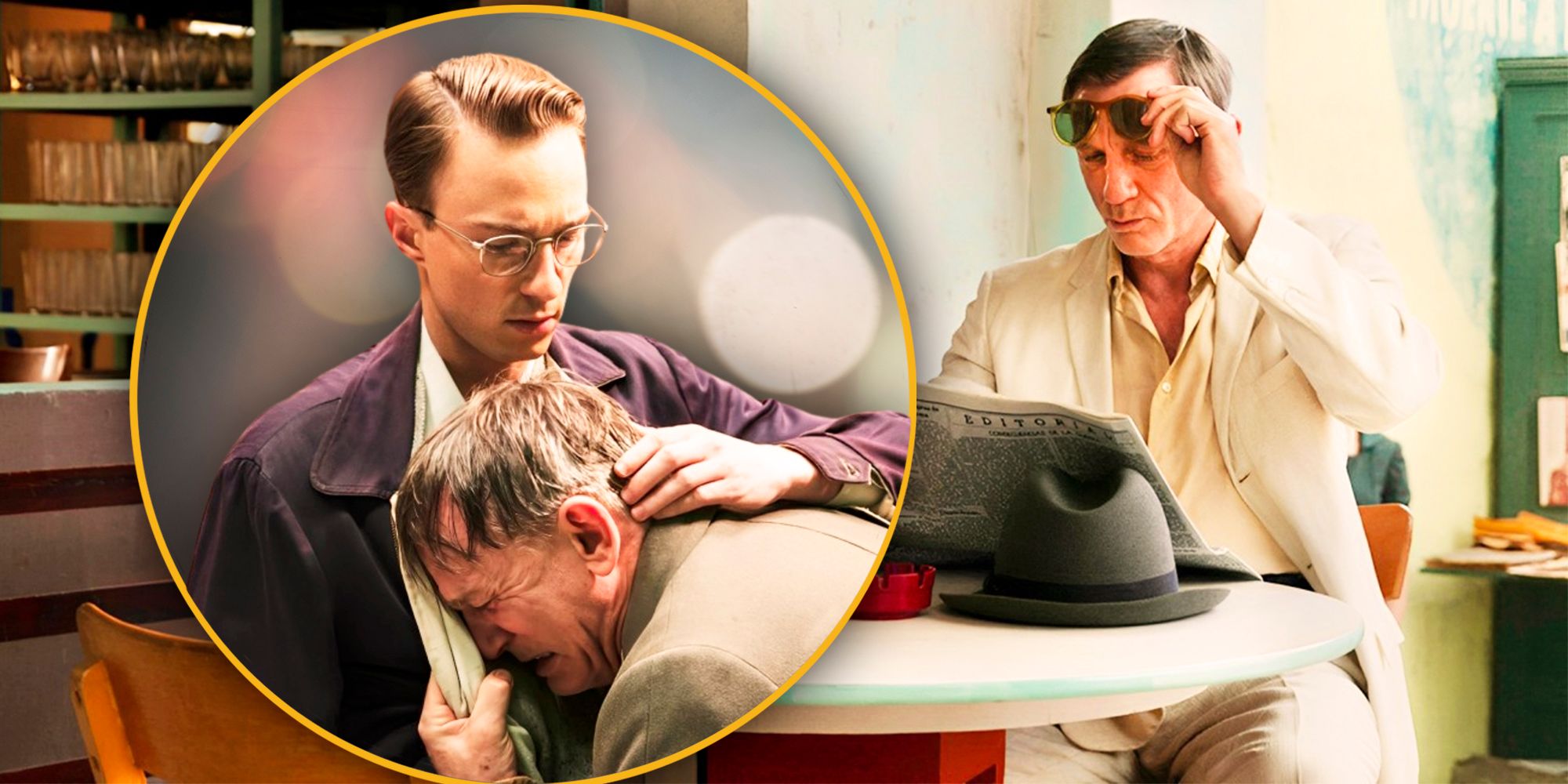 Custom image by Ana Nieves
Custom image by Ana Nieves
Warning: SPOILERS for the ending of Queer!
Queer is yet another success story for filmmaker Luca Guadagnino, who has been hailed as one of the greatest cinematic visionaries in recent decades. While filming his box office hit Challengers, the director teamed up once more with writer Justin Kuritzkes for an arguably more ambitious task: adapting a William S. Burroughs novel. Daniel Craig stars as William Lee (often considered a stand-in for the author), who lives in Mexico City as an expat and experiences a life-changing love for the younger Eugene Allerton (Drew Starkey).
Though the movie is populated by several LGBTQ+ characters, the oppressive time period remains a factor standing in the way of their romance. Another problem Lee must deal with is that his straightforward expression of affection is often met with ambiguous responses on Allerton's side. While their passion is undeniable, their communication is often in doubt, which is expressed through various moments of mystifying symbolism even as they embark on a trip to South America in search of a drug (ayahuasca or yage) that will illuminate their feelings for them.
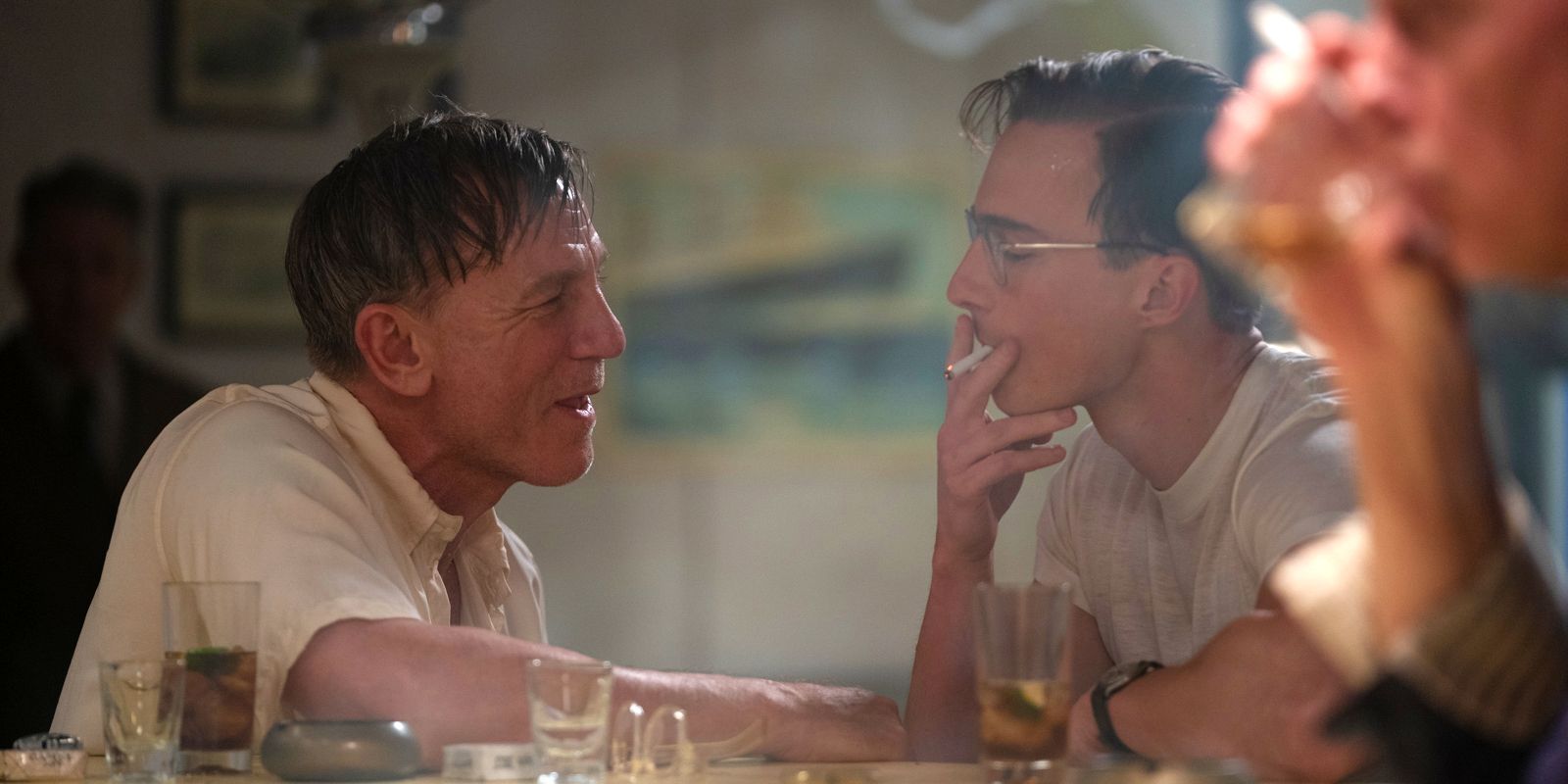
Related
Queer Review: Daniel Craig Does Career-Best Work In Luca Guadagnino’s Deeply Surreal LGBTQ Drama
Featuring the most surreal imagery of his career, Queer is as if Luca Guadagnino combined the sensibilities of his last four movies into one.
ScreenRant interviewed Kuritzes about the process of adapting Queer and some of the fascinating creative choices he and Luca Guadagnino made to deviate from the source material. The screenwriter shared how his partnership with Guadagnino on Challengers led to Queer, and answered questions about Allerton's true feelings and the complex surrealism of the final act.
Queer Was A No-Brainer For Justin Kuritzkes After Working On Challengers With Luca Guadagnino
“I immediately said yes, even though I had no idea how I was going to do it.”
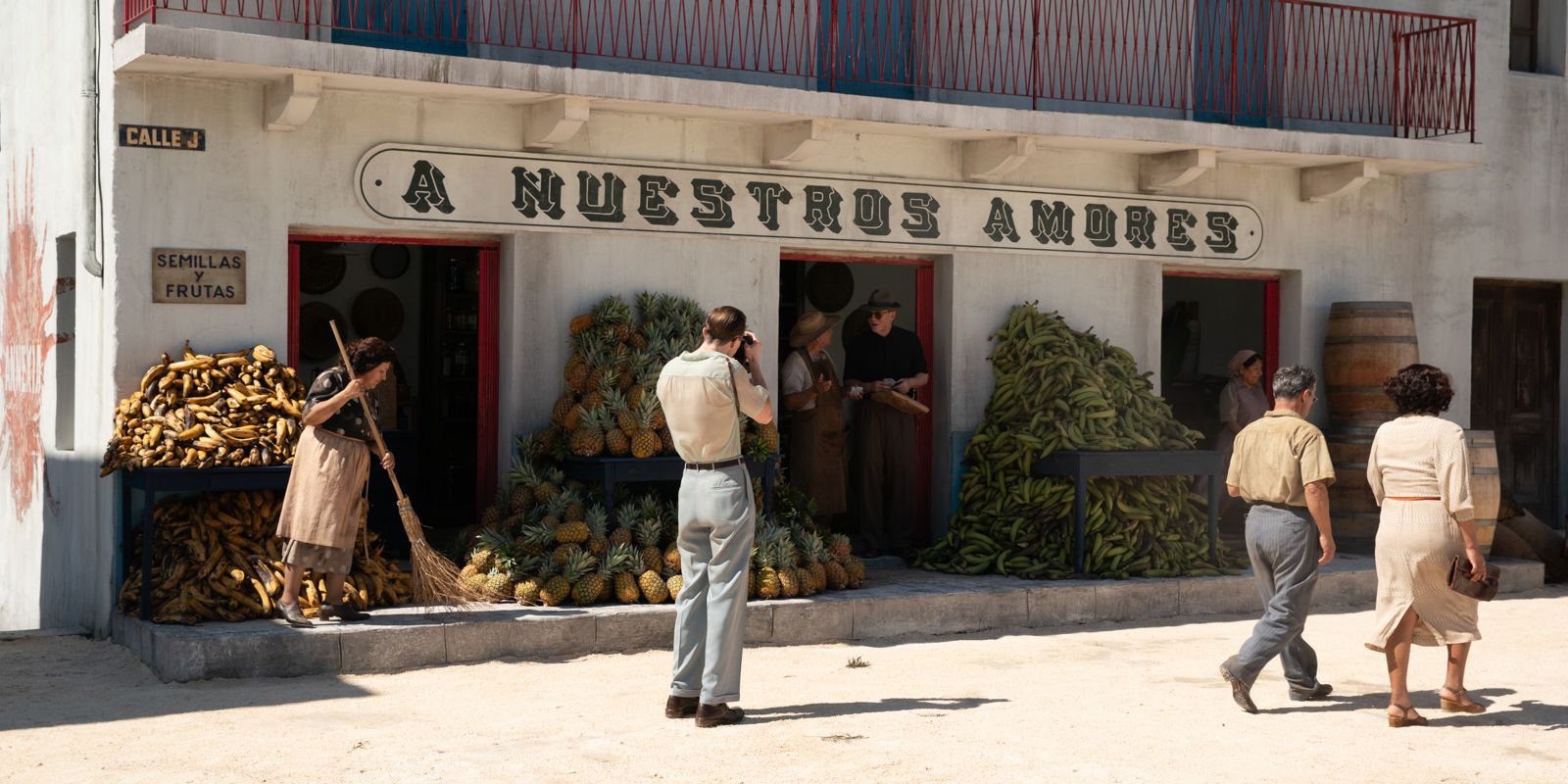
Screen Rant: You and Luca hit the ball way over the net in Challengers, and you're back for another round with Queer, but this movie is very different in everything from tone to form. How did you approach adapting William S. Burroughs' quite surreal work?
Justin Kuritzkes: Luca and I were on set for Challengers, and one day he handed me this book by William S. Burroughs and said, "Read this tonight and tell me if you'll adapt it for me." I read it that night, and I immediately said yes, even though I had no idea how I was going to do it.
First of all, this book is by a legendary author. More importantly, Luca was somebody I was getting to know very well, not just as a collaborator, but as a friend. It was so exciting to me, and I was so really deeply honored that he would trust me with that because it's a book that Luca read when he was a teenager in Italy. It was a book that he had wanted to make into a movie for a long time, and even though I didn't know what the movie was going to look like right away, I could tell that it was really important that Luca make this movie. I really wanted to watch Luca's version of this.
One of the really nice things about being together in Boston while working on Challengers was that I was able to have a lot of time to talk with Luca and think about the vision of this thing before I even started putting pen to paper. The whole time I was writing, I already felt like I was writing our movie. Because of that, it all could happen really quickly. From the moment I finished the first draft of it, we sent it to Daniel [Craig] two weeks later, and then we were making the movie. It was a very streamlined process because I knew who I was writing it for.
Screen Rant: I know Luca took his own shot at a screenplay based on Queer before, so did he have any specifications for you, or did you go back and forth on any aspect of the narrative?
Justin Kuritzkes: He never told me about this until I heard about it recently in a Q&A that he had tried adapting the book. He said he would show it to me, but I have a feeling he's never going to. So, no, I didn't know about that. But I did get to have the benefit of talking with Luca a lot about how we wanted to honor the novel, how we wanted to depart from the novel, and what was exciting to him and to me cinematically about the novel.
I was going into the process of writing with all of that ammunition, and so I was kind of selfishly trying to write scenes that I was excited to show up to set to watch Luca direct. It was like wish fulfillment for me, where I would see scenes in the book and go, "Oh, that's going to be amazing," and try to write a scene that would push Luca into territory that he had wanted to go or that I wanted to watch him go into.
Breaking Down The Importance Of Perspective & Symbolism In Queer
Kuritzkes shies away from definitive explanations, but there are plenty of hints to chew on.

Screen Rant: Lee and Allerton have a deep and passionate bond, but Allerton also has one foot out the door. His perspective is not as readily available to the audience, so how do you approach writing that character and the mystery surrounding him?
Justin Kuritzkes: The book is all very much told from Lee's perspective, and Allerton is almost always viewed through the lens of Lee trying to figure out what's going on inside of this kid. But it was really important to me that Allerton not be this completely disinterested, cold person who was using Lee or playing around with him or anything like that.
That wasn't interesting to me because, first of all, that didn't feel like what was actually happening in the novel. But it also just felt like in any relationship, there's a two-way street. Luca has said, in a very succinct and nice way, that this isn't a story of unrequited love as much as it's a story of unsynchronized love. These guys are in some way always trying to find a way to be on the same page, but it's very difficult. It's always difficult to open the kind of channel that's required to communicate with somebody on the level of intuition, which is what they're both after.
Lee, in a very direct and purposeful way, says it all the time. But Allerton says in his own way because otherwise, why is he going on this trip with him? What's he doing? It was always really important to me that Allerton have agency in this whole thing and that Allerton have desire; not just be an object of desire. Because that's not nearly as interesting as the other way around.
Screen Rant: The centipede crops up throughout the movie, and I read that it is a symbol of identity and transformation in certain parts of the LGBTQ+ community, but I also know it repeats throughout Burroughs' work as a creature he despises and fears. What does it represent to you in Queer?
Justin Kuritzkes: I leave that up to the viewer, and as you've said, it's an imagery that's very present in Burroughs’ work. It was certainly something that was really important to Luca as he was building the visual language of the movie, so I wouldn't want to give a definitive explanation of what's going on with the centipede.
Something I found interesting as I was researching centipedes while writing, actually relates to identity: "centipede" is a misnomer. Almost no centipedes actually have a hundred legs. They actually never have a hundred legs, but they're called centipedes. I feel like you can infer a lot from that in a movie called Queer about this very particular queer life in this very particular setting and time.
Screen Rant: Our reviewer saw Lee as conflating his desire for Allerton with addiction, which I thought was an interesting interpretation. Given that premise, why is Lee so intent on obtaining yage (or ayahuasca), and what does it mean that Gene still leaves Lee to his own devices after they take it?
Justin Kuritzkes: I think it's important to differentiate the kind of addiction that's associated with heroin or opiates from a drug like Ayahuasca. I think addiction is something that is almost a background radiation throughout Lee's whole life more than it is an immediate issue. It obviously comes up in the movie, and there's a lot of the movie where he's going through withdrawal, but Burroughs had a relationship to heroin and was kind of doing it his whole life up until his old age. It was just a sort of constant in his life, with its own ups and downs, obviously. He wrote whole books about it!
But I don't know that I see Lee's relationship with Allerton as an outgrowth of addiction. I think it's definitely something that's happening parallel to it, but I think they're just two facets of this very complicated character's life.
Queer’s Complicated Epilogue Conflates Lee’s Desires, The Novel’s Addendums & Burroughs’ Life
“It was really important [that] we have a distinction between William S. Burroughs the man and William Lee the character.”
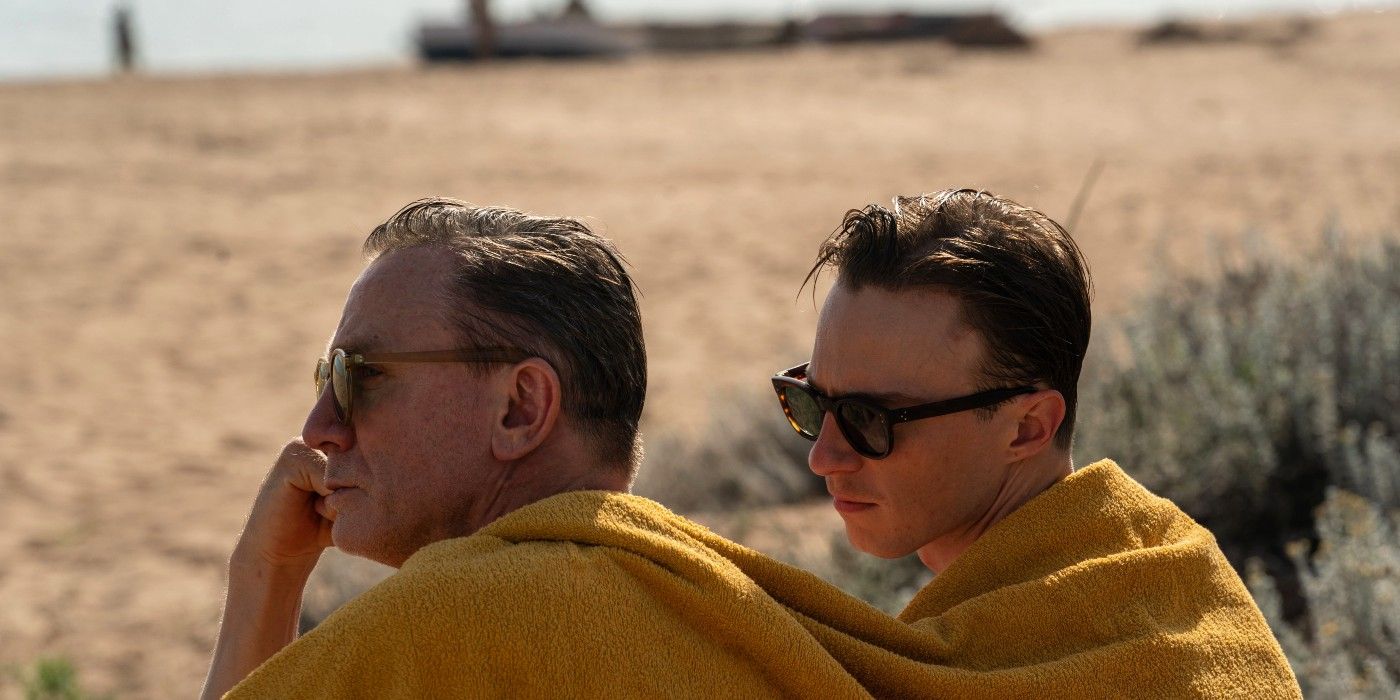
Screen Rant: The epilogue was perhaps the most fascinating part of the movie, especially the sequence of Lee growing old in the green room. What was your goal in developing that section, and what went into the decision to include that fateful game of William Tell that in real life killed Joan Vollmer?
Justin Kuritzkes: It was really important, not just to me but to Luca too, that we have a distinction between William S. Burroughs the man and William Lee the character, because I think there's a persona of Burroughs that's been projected into culture, which is very gruff and austere and macho.
When I read the book, I was really surprised to find that Lee was very tender at times and very embarrassing. He often didn't know what to say, or he would say the wrong thing and didn't know when to shut up. That was a really surprising version of Burroughs' alter ego to me, and one that I felt I could connect with and one I knew how to write for.
I think when it came to choosing what kind of external stuff from Burroughs' life or other writings that I was going to bring into the script, Queer is a very particular novel in that it's in some ways unfinished. It's really hard to say where the main text of the novel ends and where Burroughs' life or the rest of hiss work begins. So, it felt only natural that in adapting the book, you'd have to bring in stuff from other sources. Even when you read the book, there's the appendices and essays, some of which are written by Burroughs, that contextualize the book. You can never really say, "This is the text of Queer," so the epilogue just felt like an outgrowth of what the project was.
Screen Rant: Since it is unfinished. What was Luca's reaction to first reading your conclusion to Queer?
Justin Kuritzkes: We had talked about it before I showed it to him, so he knew that I was going to have them find the yage and go on this trip. He wasn't surprised by that, but I can't speak for him. I think he was excited about making it.
I was really thinking about what would be exciting to watch Luca try to make, so that scene in the jungle where they do get the ayahuasca and go on this trip together, I wrote it having no clue how he was going to pull it off. I just trusted that if anybody could pull it off, it would be him. And not just him, but the whole team that he brings along with him, which is the same team that we had on Challengers . I knew that those guys would be able to figure this out in a really exciting way,
Screen Rant: Having had two critically acclaimed successes with that team, are you looking to make it a trifecta? Have you guys had discussions about starting another project?
Justin Kuritzkes: I want to work with Luca and with all those guys as much as I possibly can. I would be very honored to find myself making another movie with any or all of them.
Screen Rant: You're adapting another novel, City on Fire by Dan Winslow. How far into development are you right now?
Justin Kuritzkes: Yeah, it's too early in the process to say too much. But I am adapting that book, and it's a fantastic book, and I am really, really excited about it.
Read More About Queer (2024)
1950. William Lee, an American expat in Mexico City, spends his days almost entirely alone, except for a few contacts with other members of the small American community. His encounter with Eugene Allerton, an expat former soldier, new to the city, shows him, for the first time, that it might be finally possible to establish an intimate connection with somebody.
Check out our other Queer interview here:
Queer is now playing in theaters throughout the U.S.
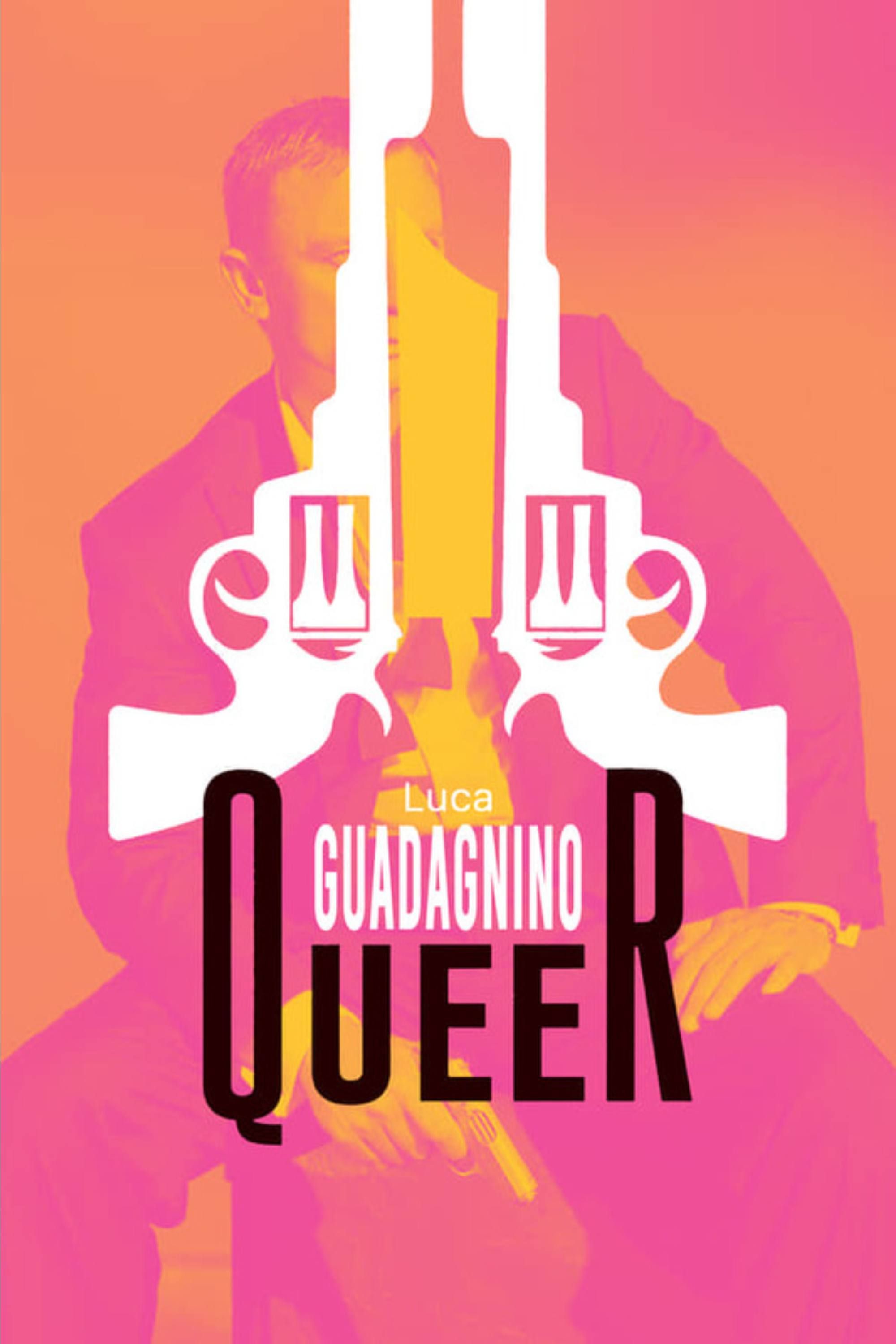
Your changes have been saved
8/10
Queer
An American expat in 1950s Mexico City, struggling with isolation and the remnants of his past, becomes infatuated with a younger man, sparking an intense and obsessive relationship.
Director Luca Guadagnino
Release Date October 6, 2024
Writers William S. Burroughs , Justin Kuritzkes
Runtime 135 Minutes


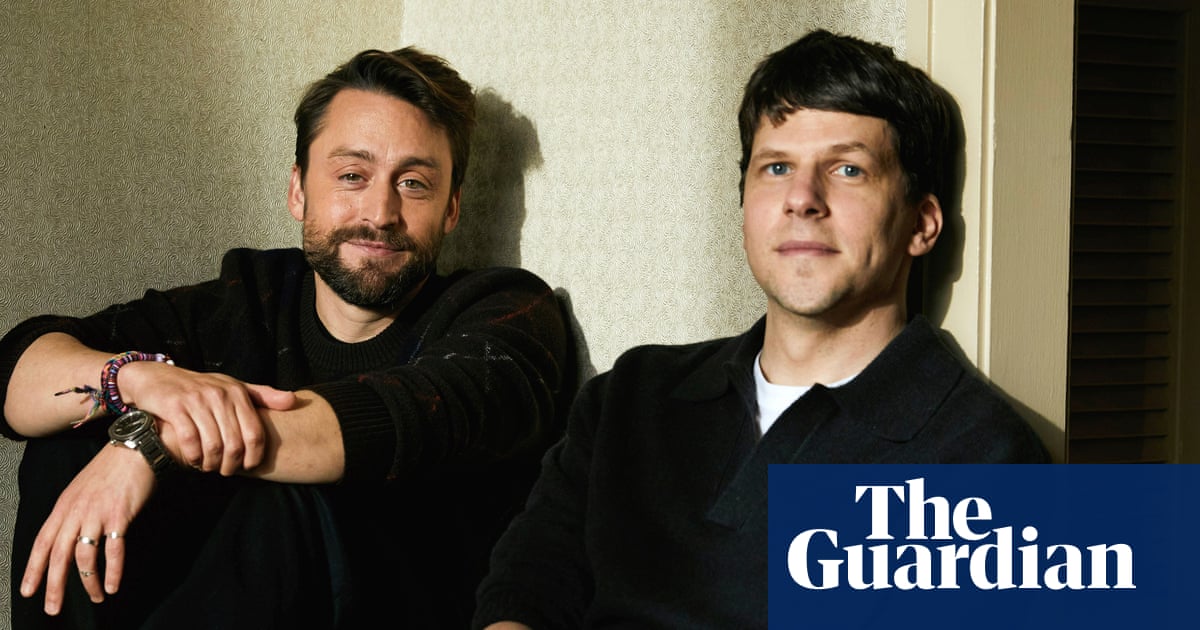
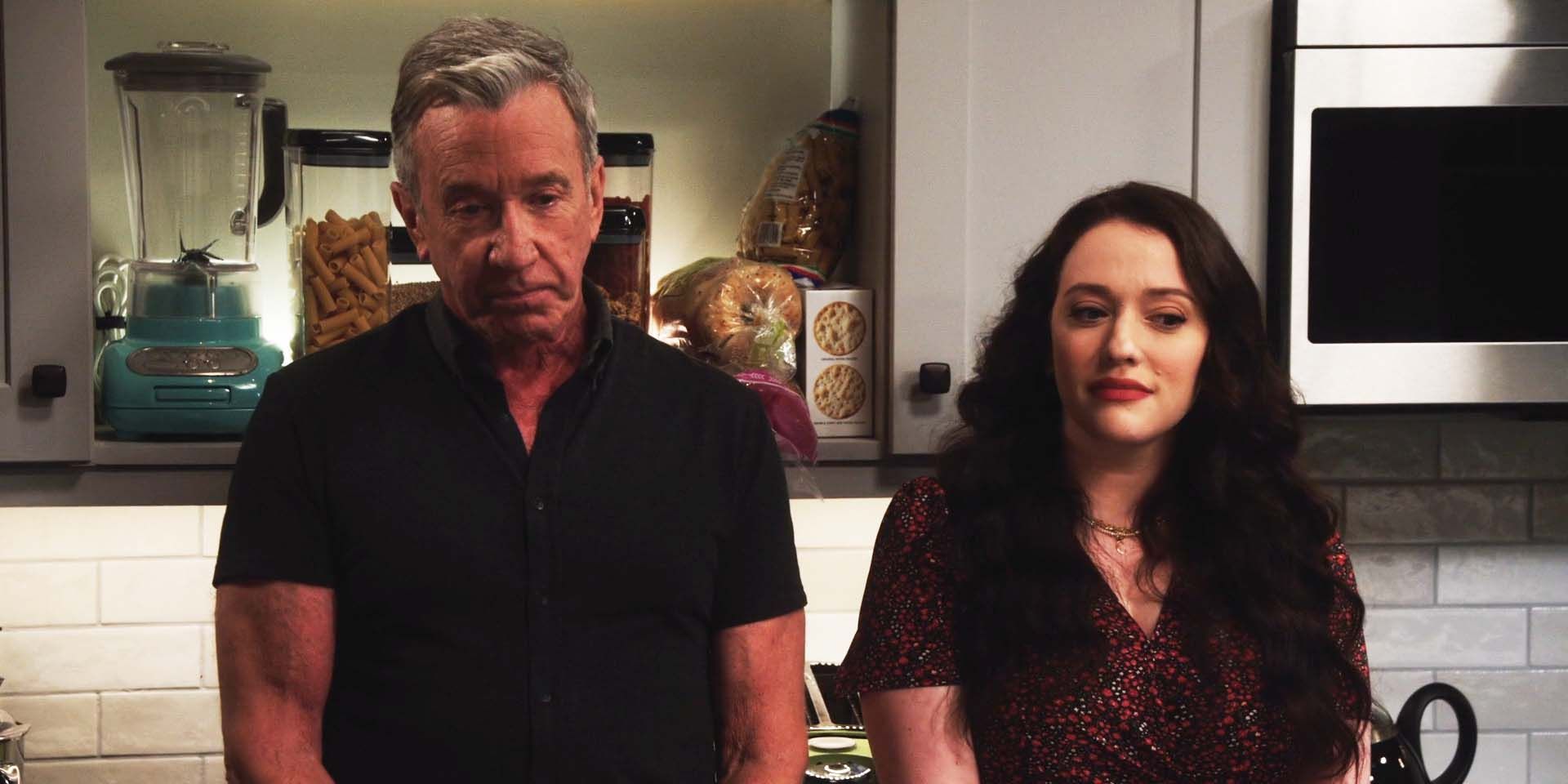





 English (US) ·
English (US) ·